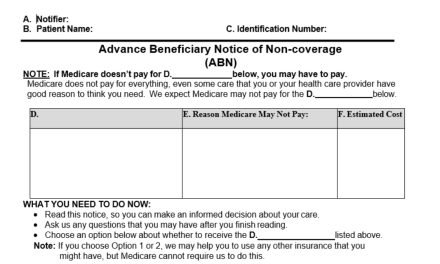
I Messed Up. I Think I Am Going to Get Sued. What Should I Do Now? How to Manage a Potentially Compensable Event (PCE)

The way that you manage a potentially compensable event (“PCE”) has a significant impact on the outcome of a malpractice case that may follow. Knowing how to manage a PCE will positively affect patient safety, employee morale, liability exposure and, hopefully, stress. We find that physicians and other providers do not know what practical steps to take when an event first occurs that could trigger a lawsuit. Providers know that they should call their malpractice insurance carrier when they are later served with a lawsuit or receive a demand letter from an attorney. But most do NOT know what to do at the time when something happens that COULD turn into a lawsuit or demand for money. This newsletter is primarily written for practice owners and independent practitioners. Employed physicians should read this but will be required to report PCEs to organization owners, risk managers, etc.
A “PCE” is any occurrence that may one day result in a malpractice claim. It includes but is not limited to an unexpected occurrence involving death or injury. When an event occurs, practical steps can indeed be taken that will help strengthen your defense and help mitigate damages. We recommend the following:
- Appoint one person to be the “investigator.” This is to keep all pertinent information in one central place. If one person oversees the investigation of an event, it will avoid conflicting information. Remember the game of “Telephone”? That is what we want to avoid.
- Resolve documentation issues. Look at your documentation about the patient in your medical record. Is it sufficient? Do not alter your documentation to force it to be sufficient. You may need legal advice on how/what to document in the medical record.
- Sequester medical records, evidence, and records related to items such as medical devices, imaging, and bills. They will then be available at your fingertips if needed.
- If an investigation is warranted, you should obtain your attorney’s formal direction to investigate so that you can protect and maintain legal privilege and confidentiality. Investigations not done at the direction of counsel will not be privileged and confidential and will be fodder for the plaintiff’s attorney.
- Advise your staff not to discuss an adverse event. At the least, this will protect patient privacy. At best, this will help in litigation later.
- Advise staff NOT to keep personal notes about the event. Personal notes are not privileged. Human nature may cause a person to think he or she is helping by writing down personal thoughts for recollection later. If a person is compelled to write down thoughts, he or she should write them to counsel in anticipation of litigation.
- Advise staff not to send emails about the event. Unless directed ONLY to counsel, email is not privileged. We have unfortunately seen many email messages outlining what went wrong, what should have been done differently, and how to correct the problem going forward. If not directed to counsel, the plaintiff’s attorney will be able to obtain the email. It is a smoking gun.
- Take the steps needed to prevent another event.
- Ask yourself whether you have insurance coverage for the event. You may have more than one insurance coverage. Put the insurance carrier(s) on notice so there is no question about timely notice.
- Think about the “bigger picture” when communicating with your insurance carrier or with potentially adverse parties. Malpractice insurance payouts and settlements to patients are reportable to licensing regulators (Illinois Department of Financial and Professional Regulation), the national data bank, and others. Many of these offices cross-report to each other. Statements you make at the time of an occurrence may have an impact not only in a malpractice case but in potentially ensuing matters such as license discipline proceedings or challenges to continued participation in Medicare or Medicaid that are triggered by the reporting of the original insurance payout.
If you follow the above steps you will have the file ready for your defense if/when you are confronted legally. It is better to take these steps at the time of an event rather than try to re-create them later, sometimes years later. You may not always be able to prevent certain legal proceedings from happening, but you will be in a far better position to defend and defeat them if they occur.
What should you communicate to a patient or patient’s family? Each case is different. Transparency and early intervention often help but should be discussed with your attorney.



















